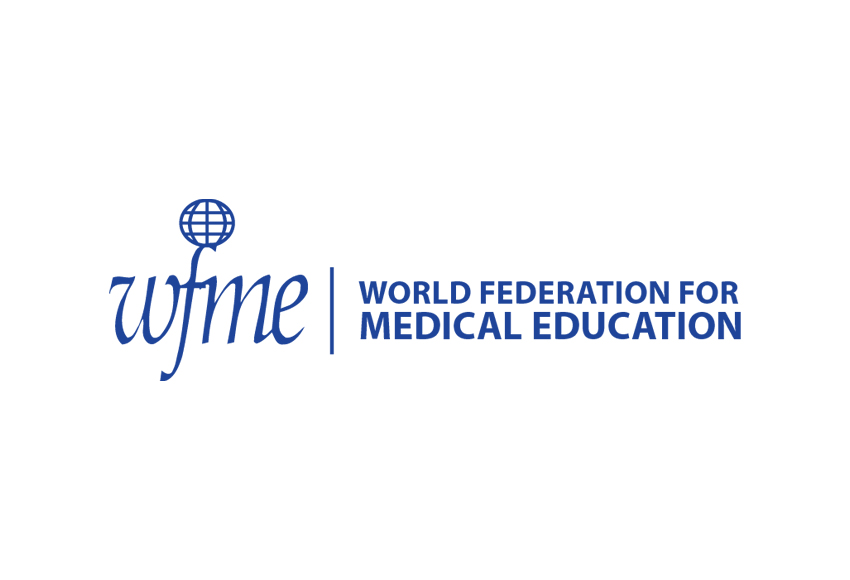
In a remarkable achievement that reflects the quality of medical education and institutional excellence, the University's Faculty of Medicine has obtained international accreditation after meeting all internationally accredited academic, clinical, and administrative standards. This accreditation is an official accreditation of the quality of educational programs, the efficiency of infrastructure, the effectiveness of learning outcomes, and the Faculty's ongoing commitment to improvement and development in accordance with global best practices in medical education. Here are details about the importance of obtaining this accreditation and the significant benefits it brings to students enrolled in the University's Faculty of Medicine.
What is WFME Accreditation?
WFME accreditation is an international accreditation granted to national bodies responsible for accrediting medical faculties. This accreditation is a global standard for academic quality, confirming that medical programs at accredited faculties adhere to international best practices and standards in medical education.
WFME accreditation is not granted directly to medical faculties, but rather to national accrediting bodies that accredit these faculties after they undergo a comprehensive evaluation process by the WFME. Therefore, medical faculties that receive accreditation from a body accredited by the WFME are considered internationally accredited.
As of 2024, graduates of medical faculties not accredited by a WFME-accredited body will no longer be able to take the US Medical Licensing Examinations (USMLE), a key gateway to medical work and specialization in the United States.
How does WFME accreditation impact medical faculties and medical students?
WFME accreditation has a fundamental impact on the educational and medical environment, and its impact can be summarized in the following points:
- Improves the Quality of Medical Education
- It requires the faculty to apply strict standards in curriculum design, teaching methods, assessment systems, and clinical training.
- It ensures that medical education keeps pace with scientific and technological developments in modern medicine.
- Encourages a culture of continuous evaluation and self-development
- It encourages the Faculty to conduct periodic reviews of academic programs and infrastructure.
- It strengthens student and faculty feedback mechanisms as a development tool.
- Enhances Academic and Institutional Reputation
- It enhances the Faculty's regional and global standing, making its name associated with reliability and quality.
- It enables the Faculty to join university networks and global medical initiatives.
- Enables Students to Access International Opportunities
- It opens the door for Faculty graduates to apply for medical training and fellowship programs in countries such as the United States, Canada, the United Kingdom, and Australia.
- It facilitates the accreditation of degrees by international health and regulatory bodies.
What is the impact of this accreditation on the university as a whole?
- Supports the strategic vision
- WFME accreditation is a strategic step that aligns with the University's goals of achieving academic excellence and expanding its global presence.
- It enhances the University's chances of entering prestigious international rankings in the field of medical education.
- It builds sustainable international partnerships: Accreditation enhances the confidence of global academic and medical institutions in the University, contributing to the establishment of academic and research partnerships and collaborations.
- It helps attract and retain competencies: It helps attract international students and qualified faculty, while enhancing graduate retention opportunities by providing a promising local educational environment.
- It supports funding and research opportunities: It increases the chances of obtaining international research grants and enhances the University's participation in global research initiatives.
Does this accreditation make the Doctor of Medicine program internationally accredited?
Yes, directly.
WFME accreditation means that the Doctor of Medicine program has been subjected to international quality standards through a national accreditation body accredited by the WFME. Obtaining this accreditation constitutes international accreditation of the basic medical education program and is a prerequisite for degree equivalency and continuing professional careers in many countries.
This forms the foundation upon which these postgraduate medical specializations (such as fellowships or clinical residency programs) are built, enabling graduates to:
- Take international medical licensing exams
- Enroll in residency programs abroad
- Receive academic and professional accreditation by global health authorities
Thus, accreditation gives the medical degree international weight and facilitates its accreditation in various health systems around the world.
Does this accreditation facilitate the accreditation of specializations within the 1948 territories?
Yes, significantly
Regulatory bodies in the 1948 territories (such as the Israeli Ministry of Health) require that medical faculty graduates have graduated from an institution accredited by a WFME-accredited body.
Thus, at the Faculty that obtained this accreditation:
- It removes administrative and bureaucratic obstacles to the accreditation of degrees and specializations.
- It facilitates registration for practice and specializations.
- It provides important institutional and professional cover in a complex regulatory environment.
What opportunities does WFME accreditation open for medical students?
- The ability to sit for international licensing exams, including:
- USMLE in the United States
- MCCQE in Canada
- PLAB in the United Kingdom
- AMC in Australia
- It facilitates admission to residency and fellowship programs at major international medical institutions, which require this type of accreditation as an admissions criterion.
- Opportunities to participate in medical research
- The ability to join medical research and development networks.
- Better opportunities for scientific publication in peer-reviewed medical journals.
- Work with international health organizations, such as the World Health Organization (WHO), Médecins Sans Frontières (MSF), and the International Red Cross.
- It enhances employment opportunities locally and internationally. This includes:
- It increases employer confidence in graduates' competence.
- It facilitates certification equivalency procedures in various countries.







